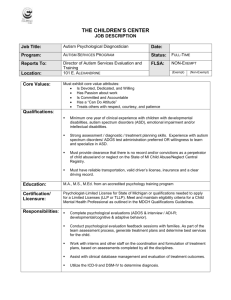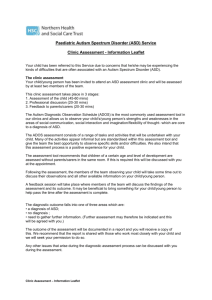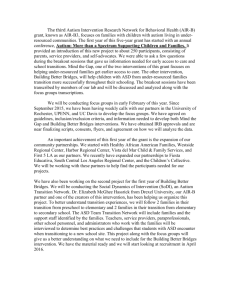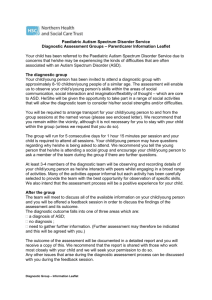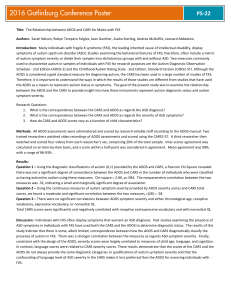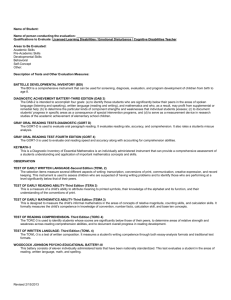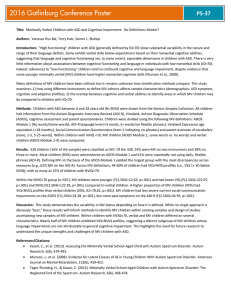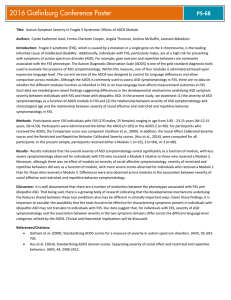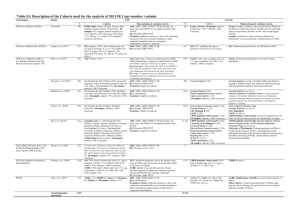Revised Algorithm and Standardized Severity Scores
advertisement
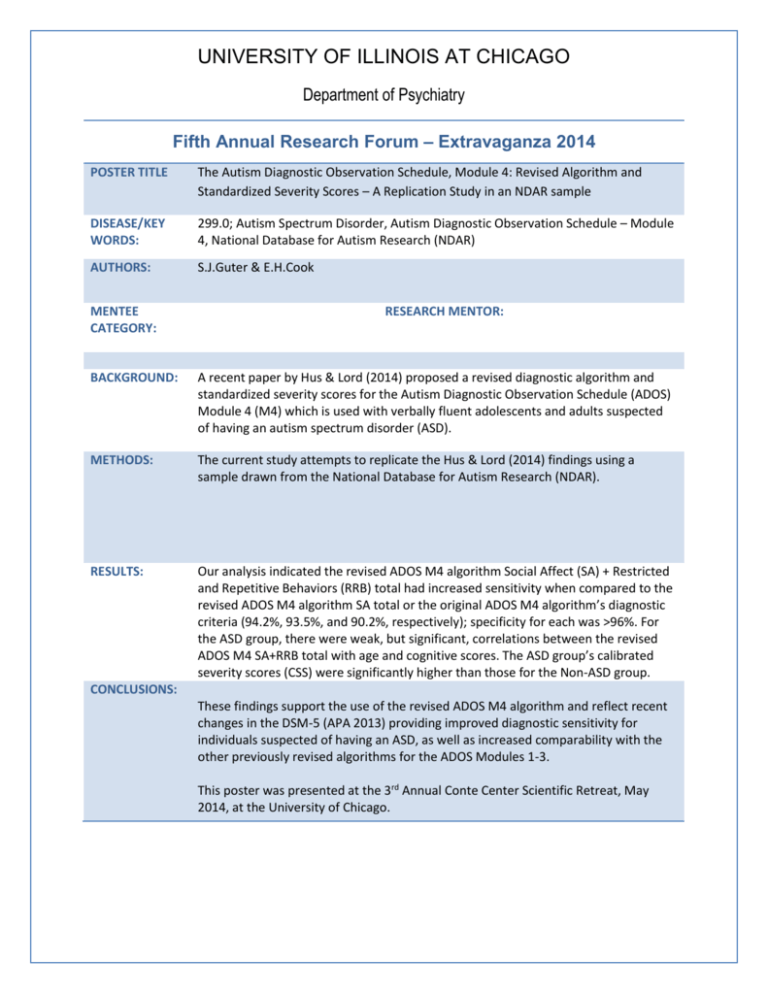
UNIVERSITY OF ILLINOIS AT CHICAGO Department of Psychiatry Fifth Annual Research Forum – Extravaganza 2014 POSTER TITLE The Autism Diagnostic Observation Schedule, Module 4: Revised Algorithm and Standardized Severity Scores – A Replication Study in an NDAR sample DISEASE/KEY WORDS: 299.0; Autism Spectrum Disorder, Autism Diagnostic Observation Schedule – Module 4, National Database for Autism Research (NDAR) AUTHORS: S.J.Guter & E.H.Cook MENTEE CATEGORY: RESEARCH MENTOR: BACKGROUND: A recent paper by Hus & Lord (2014) proposed a revised diagnostic algorithm and standardized severity scores for the Autism Diagnostic Observation Schedule (ADOS) Module 4 (M4) which is used with verbally fluent adolescents and adults suspected of having an autism spectrum disorder (ASD). METHODS: The current study attempts to replicate the Hus & Lord (2014) findings using a sample drawn from the National Database for Autism Research (NDAR). RESULTS: Our analysis indicated the revised ADOS M4 algorithm Social Affect (SA) + Restricted and Repetitive Behaviors (RRB) total had increased sensitivity when compared to the revised ADOS M4 algorithm SA total or the original ADOS M4 algorithm’s diagnostic criteria (94.2%, 93.5%, and 90.2%, respectively); specificity for each was >96%. For the ASD group, there were weak, but significant, correlations between the revised ADOS M4 SA+RRB total with age and cognitive scores. The ASD group’s calibrated severity scores (CSS) were significantly higher than those for the Non-ASD group. CONCLUSIONS: These findings support the use of the revised ADOS M4 algorithm and reflect recent changes in the DSM-5 (APA 2013) providing improved diagnostic sensitivity for individuals suspected of having an ASD, as well as increased comparability with the other previously revised algorithms for the ADOS Modules 1-3. This poster was presented at the 3rd Annual Conte Center Scientific Retreat, May 2014, at the University of Chicago.
